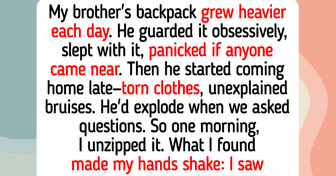my cousin was always a pretty nasty child who misbehaved a lot and my aunt never ever tried to do anything about it, she always said "just let him be, he will try and develop himself the way he wants"
9 Ways Parents Encourage Misbehavior in Their Children
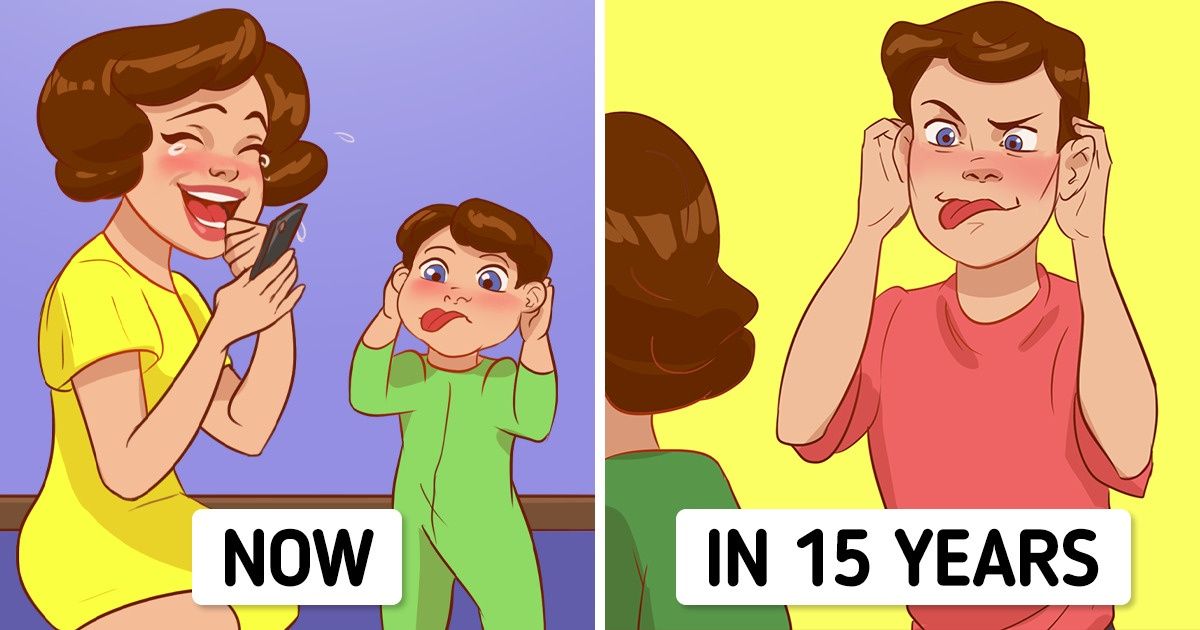
Since children’s brains are not fully developed, they usually use misbehavior as a tool to communicate their needs and emotional state. But sometimes it’s a sign that parents are doing something wrong, and punishment isn’t the best solution. Many adults are simply unaware of how their actions can be the reason why their kids are acting out.
We at Bright Side found out how parents encourage their kids to drop the ball.
1. They criticize their children too much.
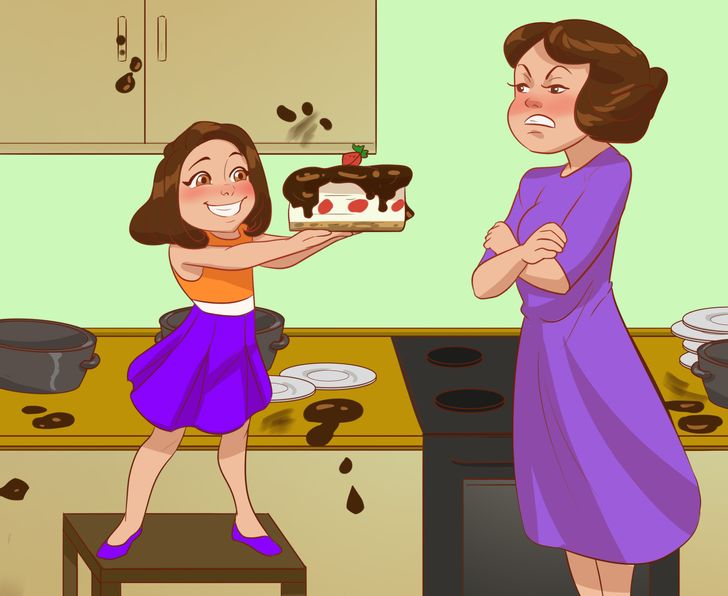
Constant criticism makes anyone feel like they can never get anything right, and kids are especially vulnerable. If parents expect perfection from their kids, and instead of praise they only get disapproval, it’s no wonder your little ones will start playing fast and loose. What’s worse, is destructive behavior from the parent’s side will lead to problems that require professional mental health help.
2. They don’t present a united front to their children.
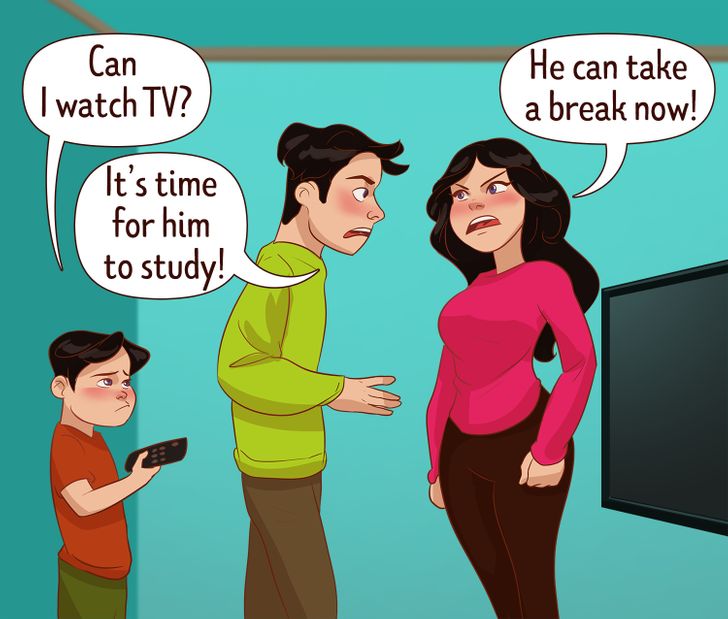
Something as common as conflicts between parents teaches children to ignore one parent and run to the other for backup. Children will petition each parent individually until they get the answer they want. They may feel like you’re too strict or unfair once they’re exposed to new rules and structures, which will lead to acting out and rebelling against your authority.
3. They try to be their children’s friends.

Cool parents want to be their children’s friends and are relaxed on rules and discipline. But the risks outweigh the benefits since, in this type of parenting style, the adult loses the power of authority and their children’s respect. “Cool parents” are forcing their kids to make decisions they’re not capable of making, which some specialists refer to as a collapse of parenting.
4. They give their children too many choices.
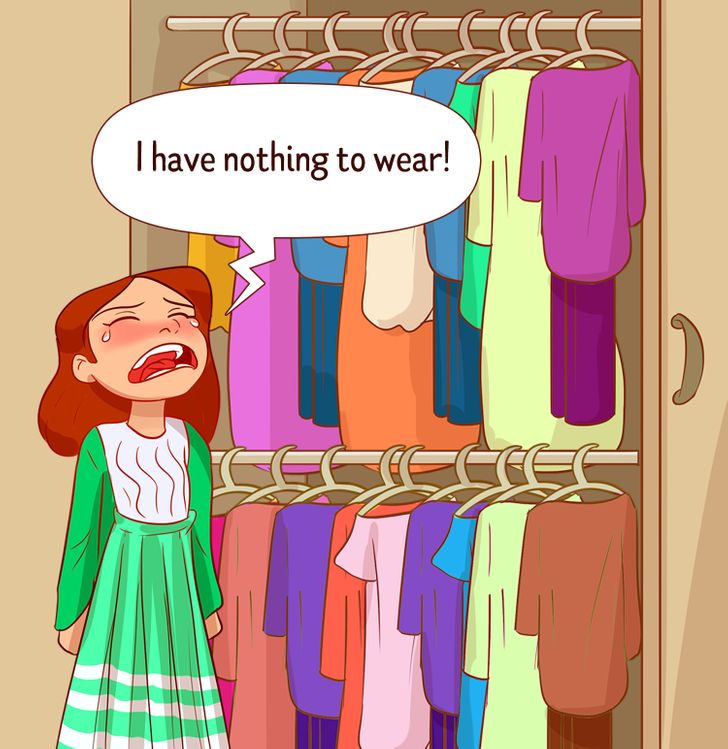
2 choices that are acceptable to a parent are enough, but too many choices can overwhelm a child. Being unable to choose, for kids, will end up making a mess and causing a disturbance. And in case a child chooses something that’s unacceptable, it may force the parent to go back on their word, looking like an untrustworthy liar. As a result, the child will try to keep nagging to get their way.
5. They don’t set a good example.
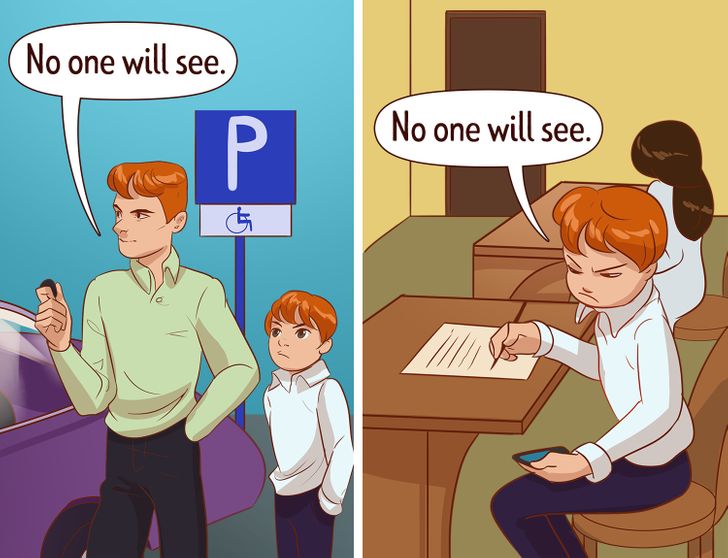
While it’s obvious that children do what they see their parents do, in daily life, we often forget about it. Next time you see a mother cut in line at the supermarket or park in a handicapped parking spot, you know that her kids likely act the same way. But luckily, parents that set a good example are more likely to have children that do the right thing, even when they’re not being supervised.
6. They give their children orders without an explanation.
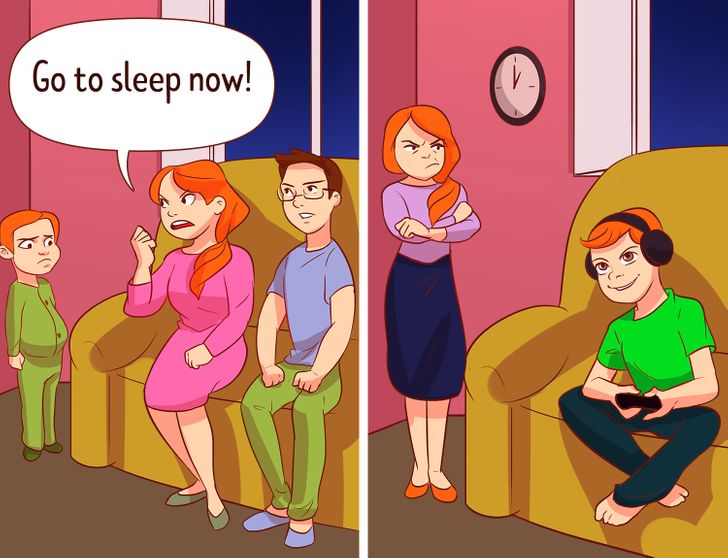
We all know parents that raise their children like little soldiers. The children will do what they’re told without understanding why. These children may rebel because they feel like they’ve been treated unfairly. They may engage in backtalk and will slam doors, which leads to harsher punishment.
It can be easily fixed by explaining why things are done a certain way. An explanation teaches children to self-regulate. Teenagers may also come to respect your values and decision-making process.
7. They shy away from professional help.
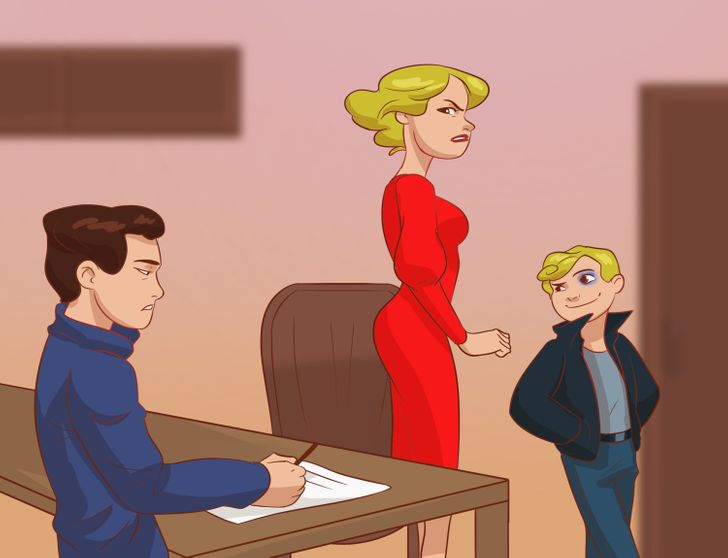
Of course, tantrums are normal at a young age. But if the child is out of control, they may suffer from a behavior disorder. Some parents will find reasons and excuses for why their children behave badly, but they’ll never admit that there’s a problem. Denial of a specialist’s help only makes the situation worse — it’s like a snowball, and it may even lead a kid to a criminal record in the future.
8. They speak for their children.
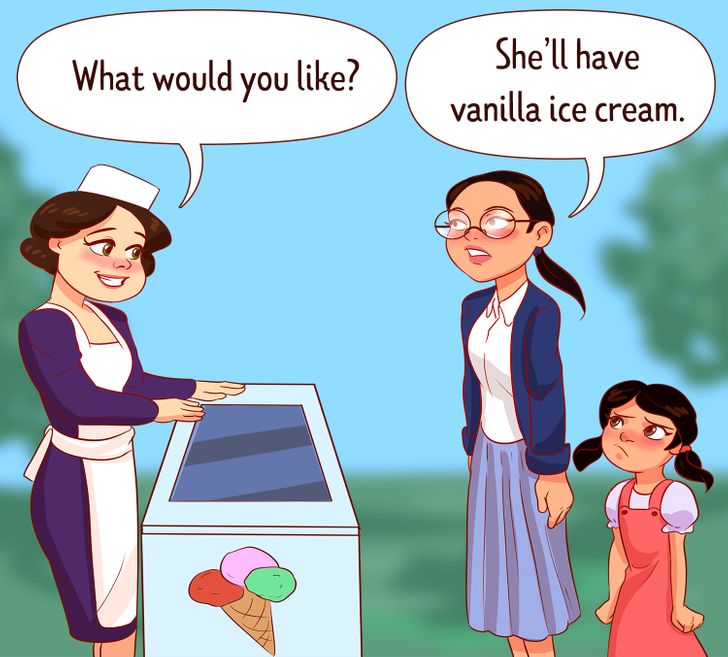
A child’s rude manner of speaking may be explained by a lack of social skills, which happens when parents always speak on the behalf of the kid. Children learn manners and social graces by being included in social situations. Something as simple as introducing themselves or saying “excuse me” and “thank you” teaches a kid politeness and how to communicate with other people.
9. They laugh when kids are too cute for words, and yet they misbehave.
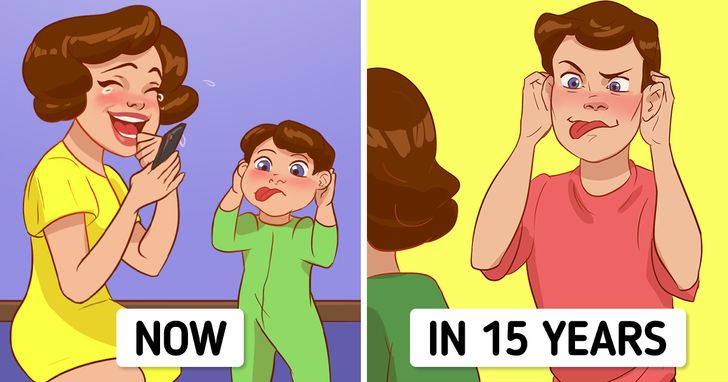
When kids are small, we often can’t help but laugh when they behave naughtily. We know that when kids make faces or when they get angry, they often look funny and adorable. However, be careful, as laughing at your little one might cause trouble in the future. In families where kids were laughed at, behaving badly is likely to become a problem in the future.
What points do you agree with? Have you ever noticed that your words and actions made your kid act out?
Comments
and how's he now?
at one point he started to misbehave so much it was ridiculous... and she had to change and finally become strict 🤣
Related Reads
Why Modern Parents No Longer Believe in Rewards and Punishment to Educate Their Children
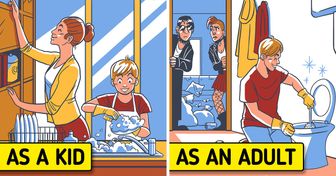
11 Stereotypes That Should Have Stayed in the Past, But Still Hurt Us Today

19 Truthful Comics About How Differently Moms and Dads Raise Their Children
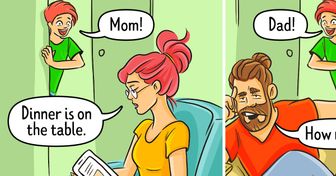
17 People Whose Tongue Is Sharp and Every Word Is Spot On

15 Secrets That Were Carefully Hidden in Popular Cartoons

20+ Cool Tips People Got From the Internet, Tried by Themselves, and Scored 10/10
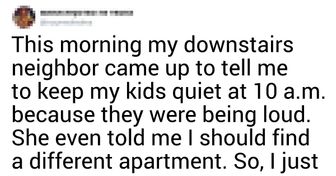
15+ Girls Whose Prom Dresses Will Be Remembered for a Long Time

14 People Who Are Ready to Tell You the Whole Truth About the Beauty Procedures They Used

8 Hacks for Parents to Get Their Children to Eat Healthy Food
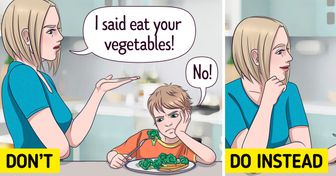
My Wife Wanted to Divorce Me Over Dinner, but Her Next Move Made Everything Worse
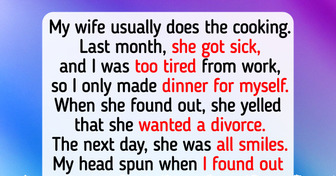
15 Stories That Remind Us to Stay Kind, Even When the World Isn’t

11 Heartwarming Stories That Prove Family Is Everything
